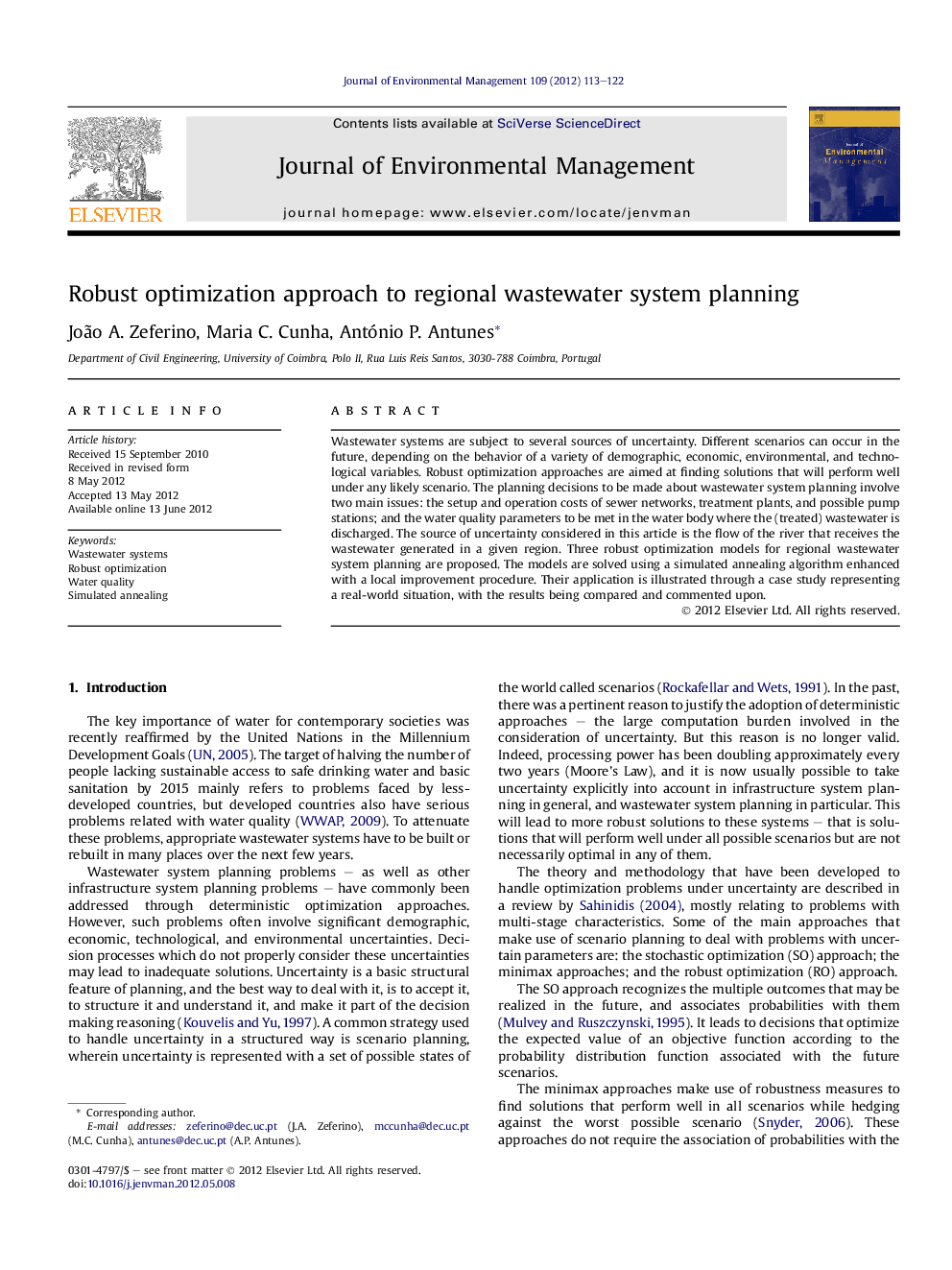| Article ID | Journal | Published Year | Pages | File Type |
|---|---|---|---|---|
| 1056488 | Journal of Environmental Management | 2012 | 10 Pages |
Wastewater systems are subject to several sources of uncertainty. Different scenarios can occur in the future, depending on the behavior of a variety of demographic, economic, environmental, and technological variables. Robust optimization approaches are aimed at finding solutions that will perform well under any likely scenario. The planning decisions to be made about wastewater system planning involve two main issues: the setup and operation costs of sewer networks, treatment plants, and possible pump stations; and the water quality parameters to be met in the water body where the (treated) wastewater is discharged. The source of uncertainty considered in this article is the flow of the river that receives the wastewater generated in a given region. Three robust optimization models for regional wastewater system planning are proposed. The models are solved using a simulated annealing algorithm enhanced with a local improvement procedure. Their application is illustrated through a case study representing a real-world situation, with the results being compared and commented upon.
► We develop a robust optimization approach to regional wastewater system planning. ► Three optimization models can be used within the proposed approach. ► Robust and deterministic optimization approaches are compared for a case study. ► Results show the gains that can be derived from the use of a robust optimization approach.
